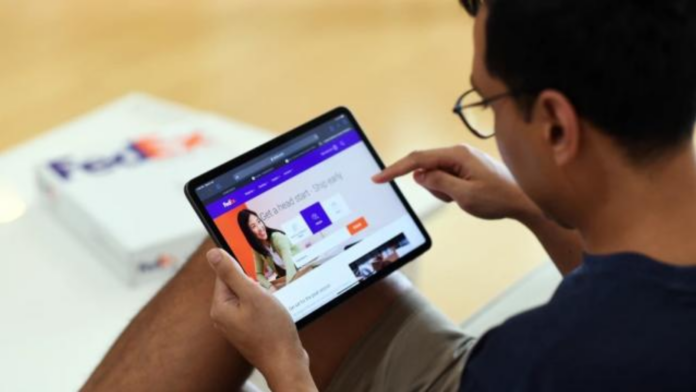In a bold move to redefine the e-commerce landscape, FedEx, a global leader in logistics, has announced the launch of its own commerce platform, FDX. This innovative platform is poised to offer a comprehensive suite of services for merchants, setting the stage for a potential showdown with industry giant Amazon.
FDX is currently undergoing a private preview, with a broader rollout planned for fall 2024. Merchants interested in exploring what FDX has to offer can sign up to be part of this exciting new venture. While specific brands involved in the pilot program remain under wraps, the anticipation is building.
At its core, FDX is designed as an end-to-end e-commerce solution tailored to businesses of all sizes. FedEx’s approach integrates buzzwords like “data-driven” and “digitally-led,” yet concrete details on how it will stack up against established platforms are still emerging.
One of FDX’s key offerings is the integration of various FedEx services, such as ShopRunner, an e-commerce platform acquired in 2020. This integration will enable merchants to connect with customers efficiently, showcasing estimated delivery times, managing shopping carts, tracking packages, assessing the carbon emission impact of deliveries, and handling returns seamlessly.
This move by FedEx seems to be a direct challenge to Amazon’s dominance in e-commerce logistics. Amazon’s Fulfiled by Amazon (FBA) service has been a cornerstone for merchants using the company’s shipping and logistics infrastructure for years. Moreover, Amazon recently expanded its features, including allowing all U.S. merchants to list Prime-eligible items on their websites and showcase Amazon reviews. These enhancements, coupled with perks like easy returns and customer support, make Amazon a formidable player in this space.
FedEx’s venture into e-commerce is not just about new business opportunities; it’s a strategic pivot. In 2019, FedEx ended its air express and ground delivery contracts with Amazon. At that time, FedEx claimed Amazon accounted for a minor portion of its revenue. However, the dynamics have since changed. Amazon’s growing prowess in package deliveries has been reportedly outpacing FedEx and UPS in the U.S., as noted by the Wall Street Journal.
The competition between FedEx and Amazon took another turn in December 2019 when Amazon restricted third-party merchants from using FedEx’s ground delivery for Prime shipments, a decision that was later reversed. This history sets the stage for FDX’s launch, indicating FedEx’s commitment to carving out a significant place in the e-commerce ecosystem.
As we await more details about FDX and its capabilities, one thing is clear: the e-commerce world is gearing up for a significant shift. FedEx’s entry into this domain with FDX is not just about competing with Amazon; it’s about offering a diverse, robust platform for merchants who seek alternatives in the digital commerce space. With its extensive logistics expertise, FedEx is uniquely positioned to make a substantial impact, potentially transforming how merchants and customers engage in the digital marketplace.











